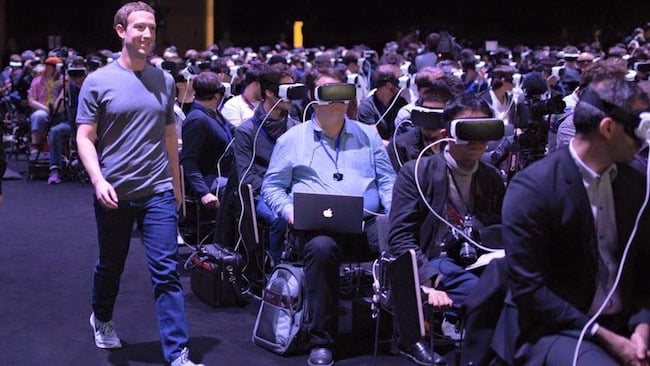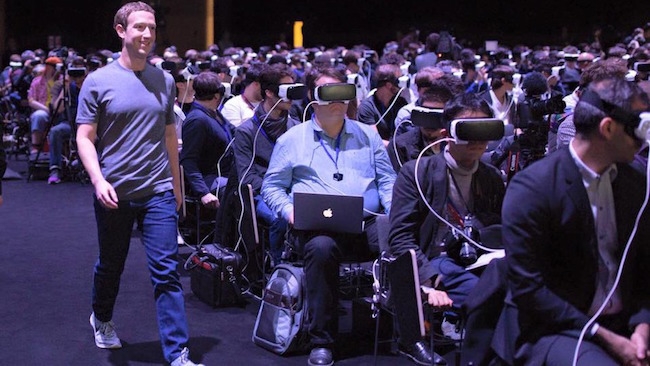
 How to be one of world's most famous people and walk through a room of journalists unnoticed...
How to be one of world's most famous people and walk through a room of journalists unnoticed...
The AR/VR bandwagon gathers momentum, with investment topping $1.1 billion in the first two months of 2016. And now Sony will officially join the fray in October.
The second coming of virtual reality - and the attended birth of its augmented cousin - has, to date, been been somewhat heavier on lofty promises, limited tech demos and availability disappointments than it has been on consumer-ready hardware.
Neither the delay for Oculus Rift’s rollout to June 2016 (and then only in very limited quantities), nor the news that Microsoft’s HoloLens will only be available in development kit form for the foreseeable future (“when I feel the world is ready, then we will allow normal people to buy it,” says Microsoft’s Alex Kipman somewhat cryptically) are very reassuring. Final price points for the various systems have also proven disappointing. Oculus has defied expectations and its own $350 ballpark quote by finally pitching its headset at a mainstream-shy $599/£500 price point, while rival product the HTC Vive is set to weigh in at $799.
Even so, investors and customers alike remain enamoured with the technology. HTC took more than 15,000 pre-orders for its VR device within ten minutes of going on sale and has now sold out of all units for delivery at launch next month. And while the $686 million invested in augmented and virtual technologies during 2015 was impressive, that figure has already been eclipsed in 2016, with $1.1 added to the pot in the first months alone.
A significant portion of this - some $794 million - went to Magic Leap, which now has some $1.4 billion in funding. Not bad for a company whose potentially game-changing tech is so shrouded in secrecy, but then major investment is required to fund both development and in-house manufacturing of its proprietary ‘photonic lightfield’ chip. Even discounting Magic Leap’s influence on the figures, AR/VR investment has increased by 20 percent in this quarter over the fourth of 2015. This represents the sixth successive period of growth.
It’s also worth noting that eight out of ten of the world’s largest tech companies are now actively investing in either VR, AR or both. Amazon is the latest heavyweight to join the fray, with development starting on a Virtual Reality ‘experience’ to operate within Amazon Video. This follows last year’s revelation that the company had submitted a patent for its own wireless augmented reality smart glasses device.
With so many tech giants and so much money behind these emerging technologies, it increasingly seems less a question of whether AR/VR will succeed but when. However, even the key players are unsure just when it will make the transition from niche toy to a must-have mainstream tool for entertainment and/or work-related pursuits. Even Facebook and Oculus owner Mark Zuckerberg recently admitted to German newspaper Die Welt am Sonntag that he had no idea how long mass-market adoption would take. “It could be five years, it could be 10 years, it could be 15 or 20… my guess is that it will be at least 10.”
Of course, since this piece was filed, Sony has announced an October launch date for its $399 base price Playstation VR headset and a slate of 50 games for it are promised by Christmas too. Could this be the game changer that accelerates Zuckerberg's 10 year window and takes VR mainstream significantly earlier? We should know by this time next year...
[Piece updated to correct typo in Oculus Rift price.]
Tags: VR & AR


Comments